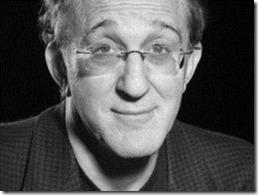This TED Talk has been on my radar for quite some time now, but thanks to my exams and study schedules, I have not been able to get around to going through it. At nearly 20 minutes (plus a lot more if your connection is as slow as mine) it is a bit longer than most of the TED Talks, but it is also a talk worth listening to:
Dr. Brian Goldman is an Emergency Physician in Mount Sinai Hospital, Toronto with his own

Usually hospitals and medical care centers are scary places for the lay people. The worry of a near and dear one in ill-health, the ubiquitous, strange, sterile smell of disinfection, the deaths and dying people… it all makes for an unreal situation not only for the patient but also for their families. In such a setting, delegating the responsibility of being correct, making the right calls and staying infallible to their doctor is almost like a second nature to them. This further fuels the fire of condemning the errant physicians.
Now that the doctors are under the purview of the Consumer Protection Act, this is set to get even worse. Now we share a consumer-provider relationship with our patients ahead of a doctor-patient relationship. While there are both positives and negatives of this step, it somehow dehumanizes and commercializes the process of healing. While it does increase accountability and reins in the “macho rogues”, it also encourages a culture where admissions like Dr. Goldman’s are met with consternation, punishment and worse, peer-ridicule.
As a young physician who loved working in the ER and spent a lot of my free extra hours there, I have realized that making mistakes are an inevitable rite of passage. That missed diagnosis, that botched procedure, that death… it all forms a part and parcel of the life of a doctor. Anyone who has worked with patients will make these mistakes. We are humans, after all, and until and unless we are replaced by algorithm-running machines (which may as well happen in the near future), we are going to make mistakes, some more, some less… and hence the least we can do, is learn from them, and ensure that another physician does not repeat it.
While there is a lot of moaning and complaining about the lack of empathy in today’s physicians, unfortunately, when it comes to preventable medical errors, being human, touted to be one of the most important qualities of a “good” doctor, is also our greatest weakness.
